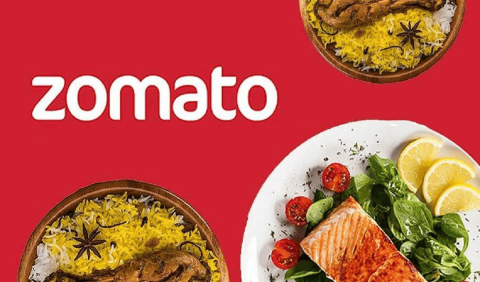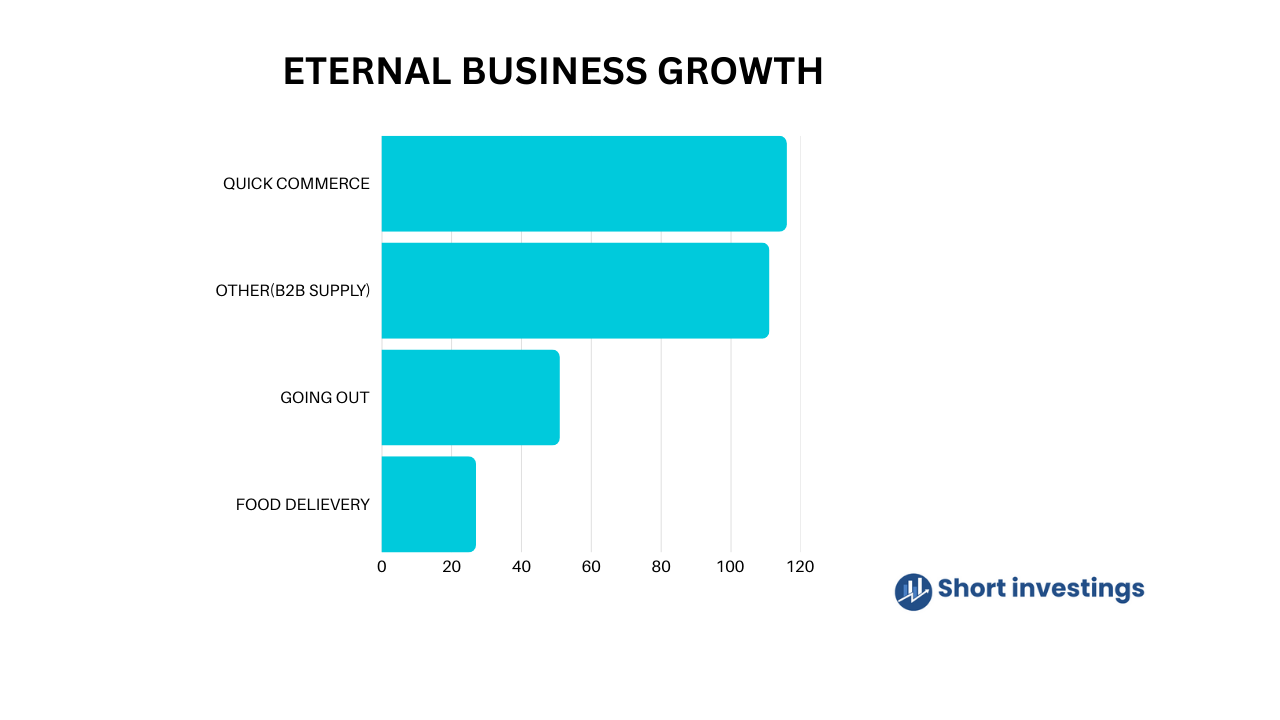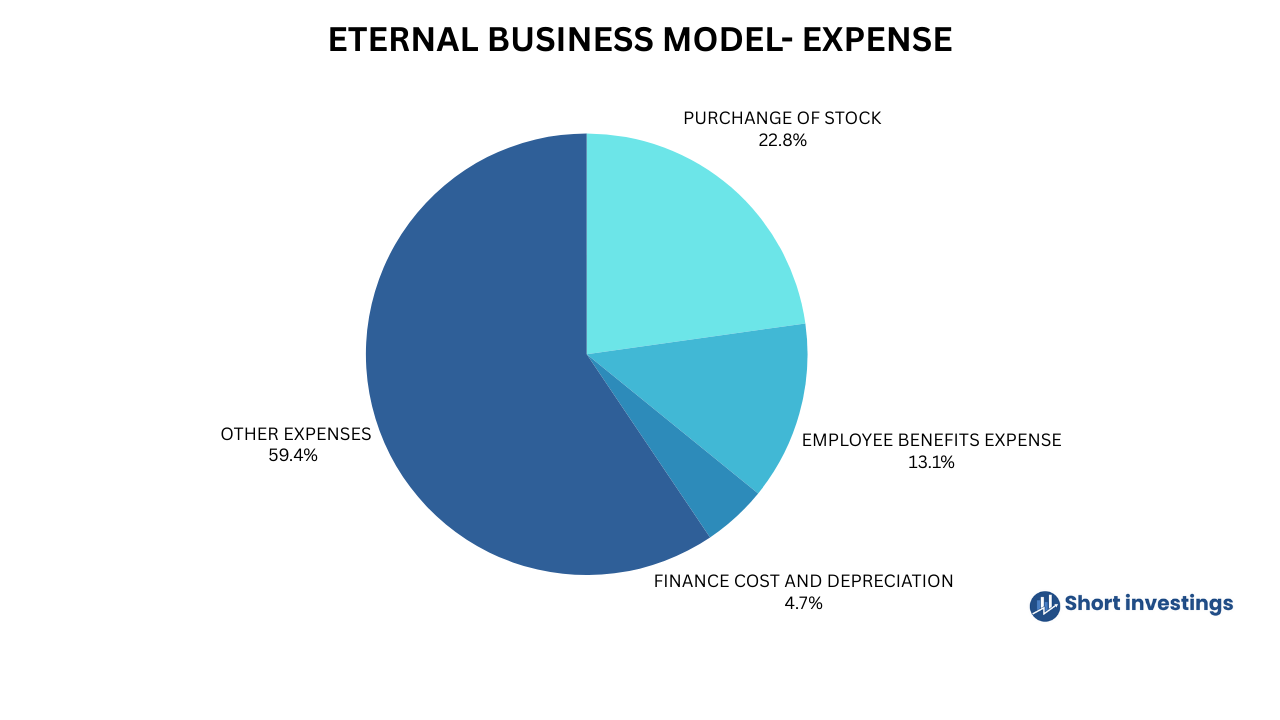ETERNAL (ZOMATO) BUSINESS MODEL; How ETERNAL makes money, expenses and future perspective of ETERNAL business
There are several types of companies that have established their businesses across different sectors. These companies already have a strong presence in their respective industries, and with experience and strategic execution, they have achieved significant growth. At the same time, in today’s modern world, several sectors are still in the pioneering stage and are beginning to grow. Eternal is one such company that has experienced growth along with the sector it operates in.
Eternal plays a leading role in shaping the food delivery business sector and has also taken several key initiatives to develop related businesses within this space. Its business model outlines various aspects, including how the company generates revenue, manages expenses, and what the future prospects of the company might be.
Revenue Model of Eternal
Initially, the company started its business solely in food delivery. It partnered with various restaurants and listed them on its application. Customers could browse the app, select their preferred restaurant, and place food orders. These orders were then fulfilled and delivered by Zomato delivery personnel. This was the basic operational model of the company's food delivery business.
This was the core business of the company. For several years, the company continued with the same model while constantly evaluating ways to grow faster and reduce operational costs. In the initial years, the company operated at a loss, as it was still in the early, pioneering stage.
Additionally, many people were not yet accustomed to such services, as food delivery was a relatively new concept for them. Over time, customers began to experience and adapt to this convenience, gradually making food delivery a part of their daily habits.
After establishing a strong food delivery setup, the company focused on reducing expenses and exploring innovative ways to add more value and expand its business model. Eternal made significant efforts and identified a new opportunity in the Quick Commerce segment.
This led to the launch of Blinkit, a subsidiary of Eternal, which now plays a crucial role in the company’s overall business strategy. A substantial portion of Eternal's revenue now comes from this segment. In addition, the company has ventured into B2B supply services, further diversifying its operations and generating consistent revenue.
Food delivery business
The company has three core revenue streams. The first is food delivery. When a customer places an order through the Zomato application, they select a specific restaurant and choose a dish. The order is then delivered to the address provided. This food delivery business, referred to as “Zomato revenue,” is one of the major contributors to Eternal’s business model. It accounts for approximately ₹7,792 crore in revenue, making it a key component of the company’s ₹32,000 crore valuation.
Quick commerce business
The second core revenue stream is Quick Commerce, operated under the brand Blinkit. This service works similarly through an app, but instead of food, it offers daily essentials like groceries, personal care products, and household items many more similar to this. This segment has shown strong growth and contributes around ₹2,301 crore in revenue. It is the one of the fasted growing business and future aspect in the eternal business model
Going out business
The third revenue stream in Eternal’s business model is the “Going Out” segment. This service caters to events, meetings, and gatherings, where bulk food orders are organized for large groups of people. Eternal facilitates these event-based food services, offering a range of culinary options tailored to various occasions.
Although this segment currently contributes around ₹258 crore in revenue, it has a promising growth trajectory. In a country like India, where events, celebrations, and meetings are common and expanding, this segment has the potential to grow significantly in the future. As a result, it could become a valuable contributor to Eternal’s overall business model.
Other business
Apart from its core segments, the company also generates revenue through B2B supplies, which is an emerging and growing part of the business. Eternal is actively exploring more opportunities to expand its revenue streams and sustain long-term growth. The focus is not only on increasing revenue but also on ensuring that the growth is consistent, measurable, and sustainable.
How Do Eternal’s Expenses Occur
Eternal has recently turned profitable after previously facing significant losses during its initial, pioneering phase. Now that the company has stabilized its operations and scaled effectively, it's important to understand how its current expenses are structured. This insight helps explain how growing revenue can lead to sustainable profit margins.
One of the major areas of expenditure for Eternal is the purchase of inventory—especially for its Quick Commerce segment. Since the company offers daily-use products through Blinkit, it must first purchase and maintain stock, which is then made available on the Blinkit app for customers to order. This cost of procuring goods is a key operational expense.
In contrast, Zomato’s food delivery segment operates differently. Since it partners with restaurants, Zomato doesn't need to purchase inventory. The restaurants prepare and supply the food, and Zomato acts primarily as a delivery and platform service. As a result, the cost structure for food delivery is lighter compared to Quick Commerce, where Eternal handles and sells its own inventory.
Going forward, as the company scales and optimizes these cost structures, profitability is expected to improve further—especially if growth continues across all major segments.
Employee benefit expenses account for approximately ₹1,659 crore. This is a significant part of the company’s overall cost structure and is expected to grow as the business scales. Given the wide range of operations—from food delivery to quick commerce and B2B supply—Eternal requires a large and diverse workforce. These expenses include salaries, delivery personnel payments, support staff, and other employee-related costs, all of which are essential for smooth day-to-day operations.
The company incurs around ₹598 crore in finance costs and depreciation. These expenses arise from assets the company has purchased, which depreciate over time, as well as interest or other financial charges.
Additionally, other expenses total approximately ₹7,531 crore—a significant amount. These include payments to restaurant partners, operational costs, logistics, and various third-party services. Such expenses are essential for maintaining the company's service quality and scaling its operations effectively.
Future Perspective of the Eternal Business Model
Eternal recently crossed a $20 billion valuation, reflecting strong investor confidence and market potential. The company’s founder, Deepinder Goyal, has set an ambitious goal of reaching a $100 billion valuation by 2030—highlighting his strong belief in the scalability and strength of Eternal’s business model.
This confidence is supported by impressive growth across all business segments. The food delivery segment has shown a 27% year-on-year revenue increase, reaffirming its position as a core revenue driver. Blinkit, the company’s fast-growing quick commerce subsidiary, has posted a 116% year-on-year growth. The “Going Out” segment—which caters to events and group dining—has experienced a remarkable 51% growth, while the B2B supply segment has grown by 111% year-on-year.
These numbers clearly demonstrate that Eternal is not only expanding across multiple verticals but is also positioned for robust long-term growth. With a forward-looking management team and a diverse revenue model, Eternal’s future prospects appear strong.
One key aspect to analyze is that Eternal has become a leading brand in the delivery business, playing a significant role in shaping and growing the delivery ecosystem in India. The company has established itself as a trusted name across various delivery segments, including food delivery, quick commerce, and event-based services.
India, being a fast-growing economy, has seen a shift in consumer behaviour—people have increasingly become accustomed to food delivery and quick commerce services. While there may be periods of muted growth, the long-term trend remains strong and upward. Eternal’s pricing strategy also supports this growth. For example, in quick commerce, the company offers prices similar to local kirana stores, making the transition seamless for consumers and encouraging greater adoption.
Furthermore, India’s projected GDP per capita growth is expected to significantly boost demand in Eternal’s core segments. Services like food delivery, quick commerce, and “going out” are closely tied to rising disposable income.
As multiple organizations forecast continued growth in India’s per capita income, Eternal is well-positioned to benefit from increased spending and urban lifestyle shifts. This supports a projected 6–7% industry growth rate in the near future and strengthens Eternal’s outlook as a dominant player in the evolving Indian consumption story.
Eternal Role in Employment in India
Eternal, through its delivery business—is playing a significant role in generating employment across India. The company has created vast opportunities for gig workers, especially for unemployed youth, low-literate individuals, and even people with disabilities. By offering flexible and accessible work options, Eternal is contributing meaningfully to social and economic inclusion.
The requirements to join as a delivery partner are minimal—typically a valid license and a two-wheeler such as a bike or scooter and some nominal things—which makes it easier for many individuals to gain employment. This low barrier to entry allows a large section of society to participate in the workforce, earn income, and support their families.
Eternal’s contribution to employment has been acknowledged by social service organizations and has also received support from the government. This makes the company not only a leader in the delivery space but also a key player in supporting inclusive growth and contributing to India's employment ecosystem.



